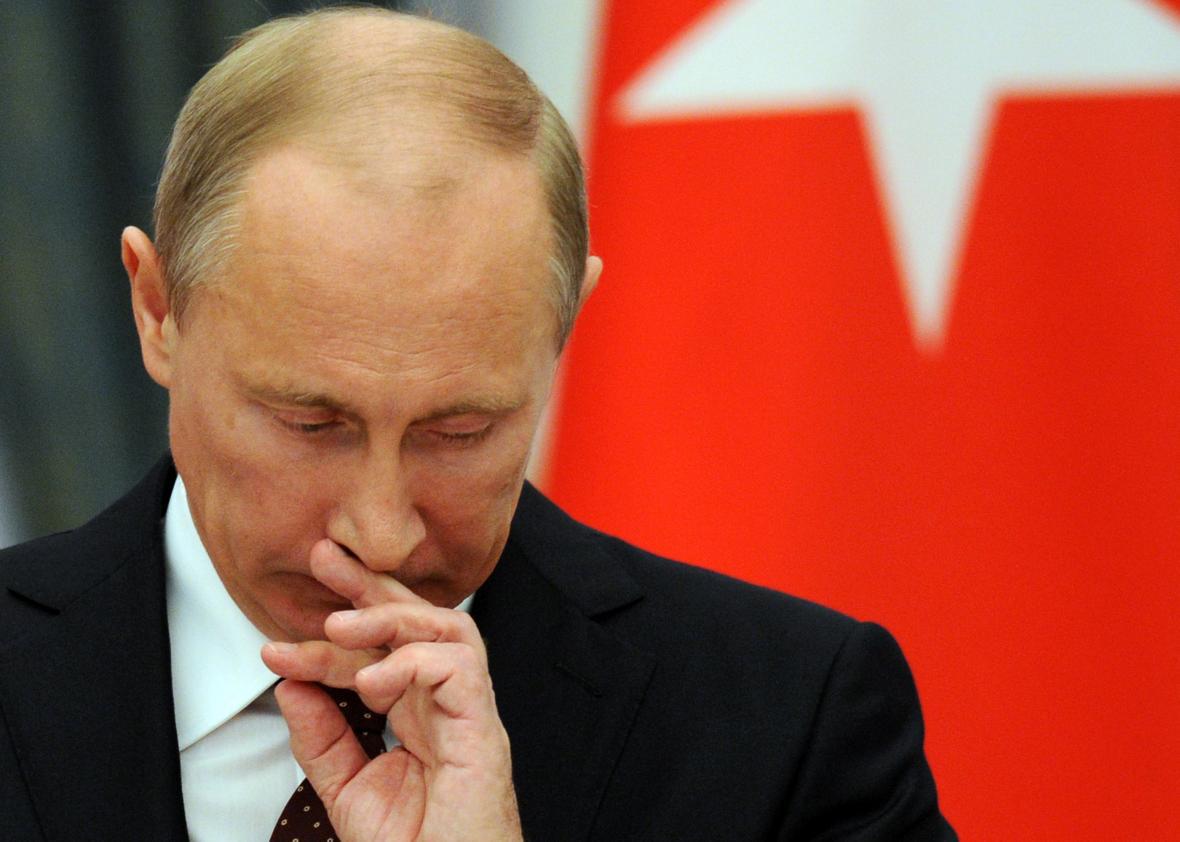Ever since Russia began launching airstrikes in Syria in September, U.S. officials have criticized the intervention, pointing out that the overwhelming majority of the strikes have targeted rebel groups fighting Bashar al-Assad’s government rather than ISIS. The campaign appeared to be Russia’s cynical bid to use the threat of terrorism as an excuse to prop up Assad’s regime. After the events of this month, however, Russia’s focus may be shifting.
It’s looking more and more like ISIS’s bombing of a Russian passenger jet, which it is boasting about in its propaganda on Wednesday, was a serious miscalculation for the group, perhaps a bigger turning point even than the Paris attack. Russian warplanes bombed ISIS’s capital in Raqqa on Tuesday in what appears to be Russia’s first significant attack on the group. Russia also gave advance warning of the strikes to the U.S. military—the first time it has done so under an agreement to “deconflict” U.S. and Russian forces negotiated last month.
The strikes came a day after Russia confirmed that a terrorist bomb likely brought down Metrojet Flight 9268 over Sinai on Oct. 31, weeks after several other countries’ intelligence services had reached that conclusion. Russian authorities did not specifically name ISIS as the likely culprit, though the group has taken credit for the bombing, but Tuesday’s airstrikes seem like confirmation enough.
That Russia is finally, seriously attacking ISIS, and coordinating its strikes with the United States, is exactly the sort of reaction that U.S. officials were quietly hoping for after the plane bombing. It also comes a few days after talks in Vienna, where 20 countries—including the United States and Russia—found a surprising amount of common ground on a road map for ending the fighting between the Syrian government and the rebels. The Paris attacks played at least some role in galvanizing the diplomatic response.
Despite serious remaining doubts about Vladimir Putin’s intentions, U.S. and European officials would be more than happy to coordinate efforts with Russia if it began seriously taking the fight to ISIS. The main stumbling block to long-term cooperation remains the fate of Bashar al-Assad, who is supported by Russia but seen by the U.S. as the source of the instability that allowed ISIS to rise—not to mention the fact that he’s responsible for far more civilian deaths than ISIS. Grateful for Russian help, U.S. and Western governments may put the Assad question to the side for the time being. Which means that while this month may mark a turning point in the fight against ISIS, it may also have made it far more likely that despite the blood on its hands, Assad’s regime will survive this war.
